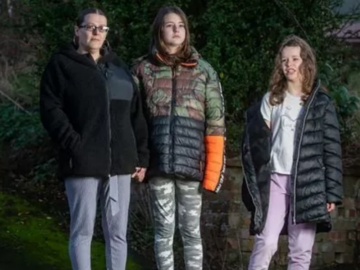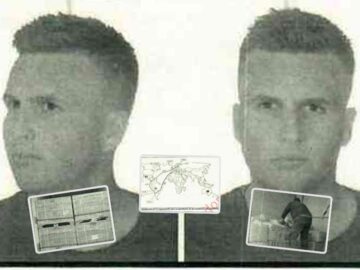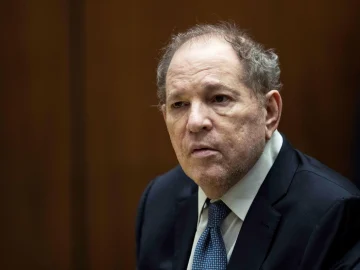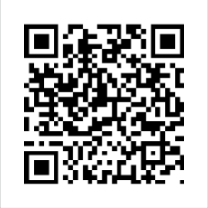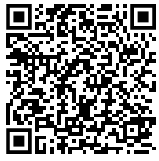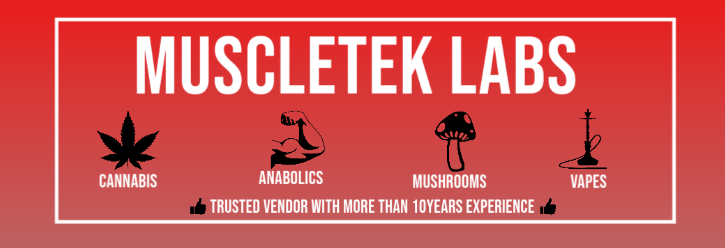8-month investigation into Colorado organization linked to Mexican cartel detailed in indictment
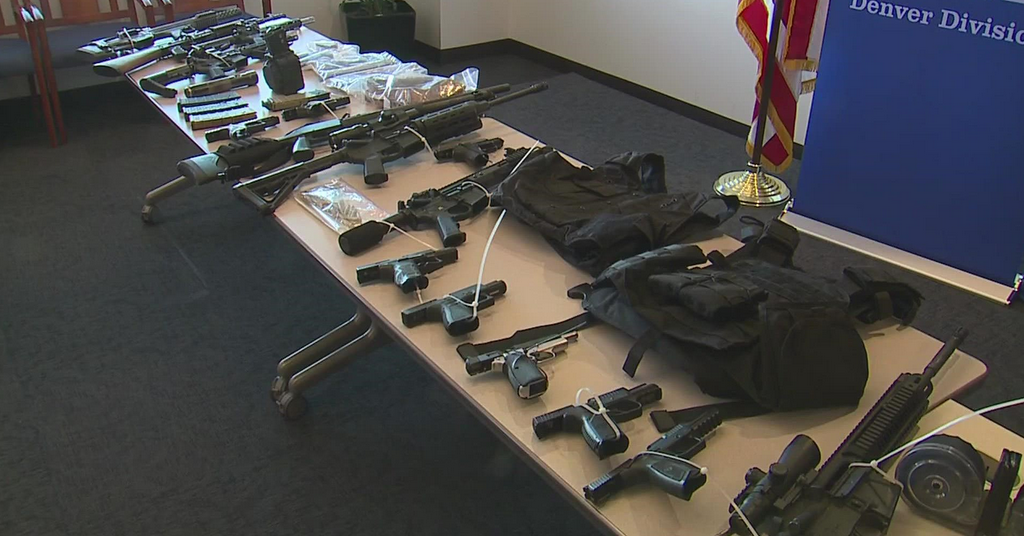
Details of an eight-month investigation into a Colorado-based drug trafficking organization with links to a Mexican cartel have been released in a grand jury indictment.
On Wednesday, the Drug Enforcement Administration (DEA) announced a 19-count indictment filed in Douglas County against 19 suspects. In addition, two related defendants were identified and arrested after the indictment, the district attorney’s office said.
The DEA said the organization was led by Saul Ramon Rivera-Beltran, 30, of Thornton, who would order drugs and have couriers pick them up. In addition to more than 110,000 fentanyl-laced counterfeit pills, the DEA said it seized numerous other drugs and weapons.
The organization’s purpose was distributing large amounts of drugs including fentanyl, heroin, methamphetamine and cocaine throughout the Denver metro area as well as Arapahoe, Douglas, and Jefferson counties, the indictment says.
At least 10 different “target telephones” were monitored over the course of the investigation, according to the indictment.
April
According to the indictment, the investigation began in April, when DEA agents learned that Samuel Padilla-Romo was selling methamphetamine in the 18th Judicial District and Denver metro area.
In April, the indictment says, a confidential informant recorded several phone calls with Padilla-Romo negotiating a $1,600 price for a half-pound of methamphetamine.
May
A meeting was set for May 1, when, the indictment says, the informant met with Padilla-Romo in the parking lot of the Safeway at 201 E. Jefferson Ave. in Englewood, and exchanged $1,600 for 210.1 grams of meth.
A wiretap order was signed for Padilla-Romo’s phone number in May, and agents learned that he was negotiating drug deals with multiple individuals including Luis “Chilo” Jacob Zytacua, who the indictment says also negotiated the purchase of guns. A wiretap order was also signed for Zytacua’s phone number, the indictment says.
June
The informant continued to negotiate prices for more meth with Padilla-Romo throughout June, and the indictment says Romo mentioned he was going to get more from Jesus Tarango-Rodriguez.
Agents discovered several calls between Padilla-Romo and Tarango-Rodriguez where they spoke about prices for pounds of “work,” which investigators believed to be meth, according to the indictment. In one conversation, the indictment says the two spoke about the price of ounces, pounds and “balls,” which investigators identified as “eight balls” of meth.
Through these calls, the agents determined Tarango-Rodriguez was Padilla-Romo’s source of drugs, according to the indictment.
While the wiretap investigation was beginning, the indictment says an undercover officer was introduced to Saul Ramon Rivera-Beltran. On June 10, undercover officers bought two ounces of heroin and 500 fentanyl pills during their first meeting in the parking lot of the Target at 7930 Northfield Boulevard in Denver, the indictment says.
The undercover officer who first made contact with Rivera-Beltran arranged another drug purchase, and the indictment says $2,200 was exchanged for a pound of meth in the same Target parking lot on June 17.
In late June, the indictment says Zytacua continued speaking to multiple customers about selling cocaine, meth and heroin. Specifically, the indictment says Zytacua had calls with users about the cost of 30 milligram pills, which agents believed to be fake fentanyl pills masked as M30 oxycodone pills.
Zytacua had a source named “Jessica” whom he spoke to about AK-47 rifles, drugs and working with people from Nayarit, Mexico, according to the indictment.
Also in June, Tarango-Rodriguez continued to make calls on a third phone number that was being monitored by agents, and the indictment says he told a user he was going to sell 500,000 “small blue ones,” which investigators believed to be 30-milligram fentanyl pills, in Kansas. In another call, the indictment says Tranago-Rodriguez discussed prices for a half-pound of meth with Padilla-Romo.
July
On July 8, after a phone call between Zytacua and a woman concerning a drug transaction, the indictment says, agents witnessed Zytacua conduct a hand-to-hand exchange with a woman at a nail salon in Aurora.
On July 20, the indictment says, Tarango-Rodriguez began discussing a drug deal with Martin Ivan Trevizo, and decided on a carport at 6600 Kearney Street as a meeting location.
Around 6:36 p.m. that evening, Tarango-Rodriguez called Rivera-Beltran and asked if he could use a truck inside Rivera-Beltran’s carport for five minutes, according to the indictment. They discussed concern over a camera pointing towards the carport, and the indictment says Rivera-Beltran commented that he would go to the residence of Albert Sanchez Rodriguez or somewhere else.
The indictment says Tarango-Rodriguez also told Rivera-Beltran that it would be done very quickly, which agents believed to be in reference to the drug deal. Five minutes later, the indictment says, Trevizo called Tarango-Rodriguez and told him he had arrived.
Around 6:43 p.m., agents watching the carport saw Tarango-Rodriguez arrive, and Trevizo got on the phone, according to the indictment.
The vehicles driven by Trevizo and Austin Peterson pulled into the carport. Tarango-Rodriguez went into the address and returned with two trash bags, which the indictment said were given to occupants of Trevizo’s vehicle.
Trevizo and Tarango-Rodriguez then drove separately to a residence at 6841 Locust St. The indictment says Trevizo’s vehicle was pulled over by officers after it left the residence.
Commerce City Police Department officers identified the driver as Trevizo and a passenger as Misael Acosta-Garcia. The indictment says six rectangular bricks with “CHANEL” stamped on them that tested positive for cocaine were found in the vehicle.
In addition to the 6.57 kilograms of cocaine packed for distribution, the indictment says officers also found $7,117 in the glovebox.
Investigators also followed the vehicle driven by Peterson, watched him transfer the items into another truck, and pulled him over, the indictment says. Inside the vehicle, the indictment says, investigators found 5,636.88 grams of cocaine also packaged as bricks with the word “CHANEL” stamped on them.
Peterson and a confidential informant said that cocaine was provided by Adrian Santana, and the indictment says Peterson showed text messages from Santana instructing him to pick up the drugs at 6600 Kearney Street.
The following items were discovered when investigators searched the Kearney Street address, according to the indictment:
- Three hand grenades
- Two AR-15 rifles
- Two 9mm pistols
- 12-gauge shotgun
- AK-47 rifle
- Firearm suppressor
- Two bulletproof vests
- About 171.21 grams of cocaine
- About 1,521 grams of heroin
- About 3,976.81 grams of meth
- About 3,184.43 grams of 30 milligram fentanyl pills (about 41,500 pills)
- About 39 pounds of marijuana
- Chevrolet Corvette
According to the indictment, that Corvette was the same vehicle driven by Rivera-Beltran during the two drug deals with undercover officers, according to the indictment.
When authorities arrived at the residence to serve the warrant, the indictment says, officers made contact with Gustavo Labrador-Valderrama, as well as Christian Gerardo Beltran-Beltran, who ran away from the scene.
Tarango-Rodriguez and Martiza exchanged multiple phone calls the morning after the search warrant was served, and the indictment said Rivera-Beltran could be heard talking to Tarango-Rodriguez in the calls.
Rivera-Beltran then called Maritza, and, according to the indictment, asked if she found food and money in the house and said “that was a good stash house.” He then asked Maritza if she found the “water” in the air duct and the “work” hidden in a closet, and spoke about what authorities found and took, including the Corvette, the indictment says.
Investigators said Rivera-Beltran’s comments proved he knew about the drugs at the stash house (some of which were discovered in the locations he mentioned), as well as his participation in the drug conspiracy and clean-up efforts, according to the indictment.
Two days later, the indictment says, Tarango-Rodriguez called Rivera-Beltran, and investigators said it was clear that Rivera-Beltran was nervous about going to a party after the search warrant was executed.
However, the indictment says, Tarango-Rodriguez began speaking to Rivera-Beltran a day later to ask if he had “buttons,” which investigators believe meant fentanyl pills. Tarango-Rodriguez said in the calls that the “buttons” Rivera-Beltran had were not good. Rivera-Beltran responded they would ask “Canelo” (later identified as Cesar Antonio Ortiz) for 100 more “buttons,” according to the indictment.
The indictment said Ortiz was heard in the background of the calls talking to Rivera-Beltran.
August
On Aug. 2, the indictment says, Zytacua called Amanda Bidgood and negotiated the sale of two grams of meth for $100 to Bidgood. After multiple messages were exchanged, the indictment says, surveillance captured them meeting at a gas station, hugging and Zytacua getting in and out of her car. Based on calls and surveillance, the investigators said, it was clear a drug transaction took place for more than seven grams of meth.
In August, the indictment says, agents began wiretaps on the phone number that belonged to Rivera-Beltran. Investigators said Rivera-Beltran began negotiating with a person later identified as Juan Francisco “Guerito” Sarabia-Mancinas for pounds of meth and pills believed to be fake 30-milligram oxycodone pills. He also made calls to customers and suppliers throughout the month, the indictment says.
On Aug. 17, agents intercepted a call between Rivera-Beltran and Miguel Diarte, and the indictment says they learned Diarte was transporting a large load of narcotics from Los Angeles to Aurora.
The next day, the indictment says, agents arranged surveillance on I-70 in Summit County of a car rented in Arizona by Diarte. The car was stopped by state troopers.
After consenting to a vehicle search, Diarte told the troopers someone put a box in his suitcase and was going to pay him $10,000 to transport it to Los Angeles, the indictment says.
Troopers located the box and found about 728.8 grams of heroin, about 2.32 kilos of several pre-packaged blue 30-milligram fentanyl pills and about 32.3 grams of meth seized from Ernestina Montoya, a passenger in the car, according to the indictment.
On Aug 19., the indictment says, state troopers stopped Anali Saavedra Flores on I-25. Flores was identified as Ortiz’s girlfriend and told troopers she had driven from Phoenix to Denver to see her boyfriend. After a K9 alerted the presence of narcotics in the trunk, the indictment says, authorities discovered a $5,000 stack from her purse, and she gave them Ortiz’s phone number, which stopped working shortly after.
On Aug. 25, an undercover agent called Jorge Escamilla and had a conversation about “hides and traps in vehicles” before, the indictment says, the conversation turned to Rivera-Beltran. They spoke about introducing Escamilla to another undercover agent as well as purchasing some “blues,” which investigators knew to be fentanyl pills, the indictment says.
On Aug. 29, a confidential informant received a call from Rivera-Beltran, and, the indictment says, they discussed meth. During the call, the indictment says, Rivera-Beltran mentioned being “hot” and that “they were going to do better,” and that three loads had been taken by law enforcement.
Rivera-Beltran specifically mentioned that a load of drugs agents believed to be cocaine that was arriving the first week of September, lamented that one of his loads had been taken, and offered the informant “1,000 almonds” which investigators believed to be fentanyl pills, according to the indictment.
On Aug. 31, the indictment says, the same confidential informant called Rivera-Beltran again. He told the informant the trap cars he ordered were not ready and had to be redone. He also told the informant a load he was waiting for had arrived, and he could give the informant 40 pounds of meth, according to the indictment.
September
On Sept. 17, the indictment says, Rivera-Beltran called and offered money to Jose Guadalupe Ortiz to drive both of them to Texas, then Arizona. Later that day, they spoke about trying to get a car out of impound, and both said they couldn’t rely on Martiza anymore, according to the indictment.
The car was eventually picked up by Rivera-Beltran after an unsuccessful attempt by Guadalupe Ortiz, and they both drove to Dallas, Texas, arriving on Sept. 18, the indictment says.
Also on Sept. 18, the indictment says, Beltran-Beltran called Rivera-Beltran about Escamilla bringing $100,000 or $105,000 to Phoenix, which was later seized by authorities. They also spoke about “almonds” and how Beltran-Beltran would not be paying Escamilla a courier fee because of a $5,000 debt.
On Sept. 19, Rivera-Beltran called Beltran-Beltran and spoke about “chocolate” (believed to be heroin), “paint” (believed to be liquid meth), and prices of meth. Rivera-Beltran said he believed he was followed by law enforcement a few days earlier, according to the indictment. Rivera-Beltran also said that he found customers in Arizona who were buying 5,000 to 7,000 fentanyl pills, according to the indictment.
On Sept. 20, the indictment says, Rivera-Beltran called Escamilla, who said he had about $170,000, and told Escamilla to bring $120,000 and leave $50,000. Rivera-Beltran said he arrived in Phoenix that day around 5 a.m., which was confirmed by GPS, told him to hide the money well, and Escamilla to bring 55 stacks of $100 bills to reduce bulk, according to the indictment.
On Sept. 23, the indictment says Rivera-Beltran called asking Guadalupe Ortiz to bring his birth certificate and some money from Colorado to Arizona, and Guadalupe Ortiz said he would fly down.
Later that night while Guadalupe Ortiz was at the airport, he spoke about concealing money in notebooks while going through security with Rivera-Beltran, according to the indictment.
Rivera-Beltran said in a later call, he would give Guadalupe Ortiz money for every trip and a weekly salary, and that Guadalupe Ortiz would be doing trips that Sarabia-Mancicnas had done in the past, according to the indictment.
On Sept. 24, Rivera-Beltran picked up Guadalupe Ortiz at the Phoenix airport after he missed a previous flight according to texts and GPS pings, the indictment says.
Antonio Ortiz asked Rivera-Beltran over a call if he had received the “chocolates,” believed to be heroin, and asked for “two,” believed to be two kilos, according to the indictment. Rivera said Escamilla had left Colorado to deliver the $170,000, which agents knew to be a lie because Escamilla’s GPS pings were still in Colorado, the indictment says. Antiono Ortiz the said that he wanted Escamilla to transport $70,000 for him as well, and Rivera-Beltran called Escamilla the next day to confirm the amounts he was taking on the trip.
Investigators discovered through calls that Escamilla was picking up a truck from a rental car agency on Sep. 27 and set up surveillance at the location, according to the indictment. Agents saw Escamilla arrive at the rental car agency, and tracked him back to his home where he loaded the rental truck with several backpacks and a tan bag, the indictment says.
Agents followed the truck onto I-70 and stopped it outside of Glenwood Springs, according to the indictment. Escamilla gave a trooper permission to search the truck and said there was only money in there, the indictment says.
The trooper discovered $69,050 wrapped in cellophane and $152,082 in two shoe boxes, and agents believe the first amount was the money sent by Antonio Ortiz and the second amount was money intended for River-Beltran, according to the indictment.
The indictment says Escamilla called Antonio Ortiz and told him “everything went to hell and that the police got them.” Escamilla then had a conversation with Nancy Vargas, and told her he had a suitcase/bag in his house that she needed to remove, as well as guns and money, according to the indictment.
In another call on Sep. 27, the indictment says Rodriguez told Rivera-Beltran that the money had been seized, and that Vargas was getting items out of Escamilla’s house. Rivera-Beltran said he had guns and “almonds,” believed to be fentanyl pills, at the house.
Rivera-Beltran then called Antonio Ortiz and old him “s*** went to hell,” and that they needed to save what they could because there was a lot of “work,” believed to be drugs, at the house, according to the indictment.
In a conversation with Beltran-Beltran later that day, Rivera-Beltran said that things were bad and the police had gotten Jorge Escamilla and his brother Antonio Lorenzo Escamilla on their way to Arizona, according to the indictment. Rivera-Beltran then said that some of the money was his and told Beltran-Beltran to get a new phone number, the indictment says.
Escamilla called Beltran-Beltran later that night, who told Escamilla he needed to pick up 24,000 pills that were moved out of the house after the traffic stop, according to the indictment.
On Sept. 29, the indictment says Rivera Beltran called Antonio Ortiz and they spoke how they didn’t have anyone bringing heroin to Colorado, and said that Alberto “Chemo” Sanchez Rodriguez could even though he usually only transported money. Antonio Ortiz said Rodriguez needed to make up for money that was previously seized by law enforcement, the discussed losing trust in Escamilla, discussed “almonds (believed to be fentanyl pills), and Rivera ended the call by saying he would bring up four more boxes of pills and to kilos of heroin, according to the indictment.
October
On Oct. 28, the indictment says Rivera-Beltran asked a woman of she had anyone who could drive a stick shift, and that he had “50” in the car, which agents believed to be 50,000 fentanyl pills. Rivera Beltran said he would pay $500 to the person and get him a plane ticket, the indictment says. That same day, agents confirmed the car was in the woman’s address in Phoenix, Arizona, according to the indictment.
On, Oct. 29, the indictment says Rivera-Beltran called Rodriguez and asked him to fly to Phoenix and drive the pills to Denver, and GPS pings show he flew from Denver to Phoenix that night.
On Oct. 30, the indictment says GPS showed Rodriguez’s phone was traveling north on I-25, and around 1040 p.m., he was stopped in the car with Nancy Vargas by Douglas County Sheriff’s Office deputies.
Rodriguez said he flew to Arizona the previous night to pick up the car which was purchased by a friend and drive it to Denver, the indictment says. A K9 alerted to the car, and a search warrant was excited that led to the discovery of 30,000 suspect fentanyl pills weighing around 3,433 grams hidden behind the taillight, according to the indictment.
November
On Nov. 1, the indictment says Rivera-Belran received a call from a Mexican phone number, and spoke about losing the car with three “boxes,” which agents believed to be fentanyl pills, and sod that “it was very hot and that it all went to hell.”
The 18th Judicial District Attorney’s Office said the following defendants will be prosecuted in Douglas County:
- Saul Ramon Rivera-Beltran
- Samuel Padilla-Romo
- Jesus Tarango-Rodriquez
- Misael Acosta-Garcia
- Martin Ivan Trevizo
- Austin Peterson
- Christian Gerardo Beltran-Beltran
- Gustavo Labrador-Valderrama
- Luis Jacob Zytacua
- Amanda Fair Wynn Bidgood
- Juan Francisco Sarabia-Mancinas
- Anita Kay Bateman
- Miguel Diarte
- Brayan Osiel Gonzales-Mancinas
- Jorge Escamilla
- Antonio Lorenzo Escamilla
- Ernestina Angela Montoya
- Cesar Antonio Ortiz
- Alberto Sanchez Rodriguez
- Adrian Santana
- Nancy Vargas




